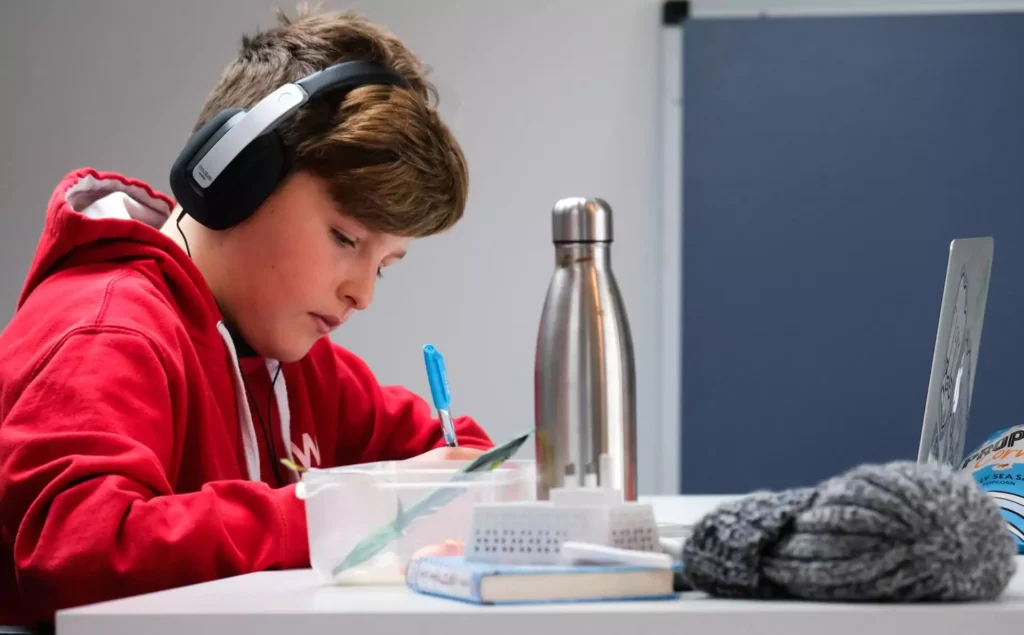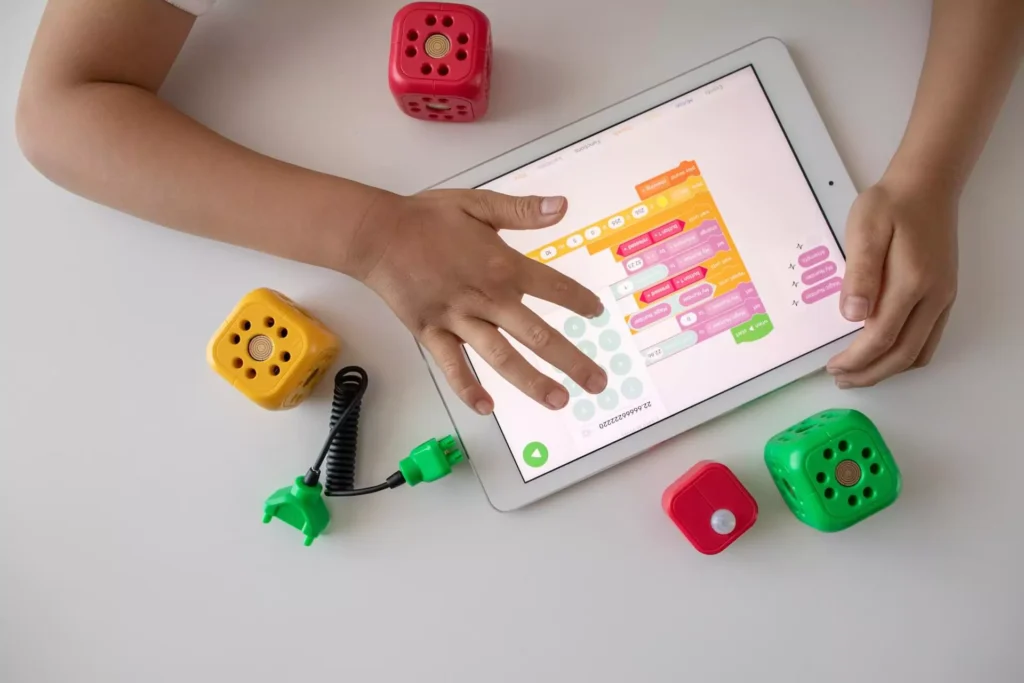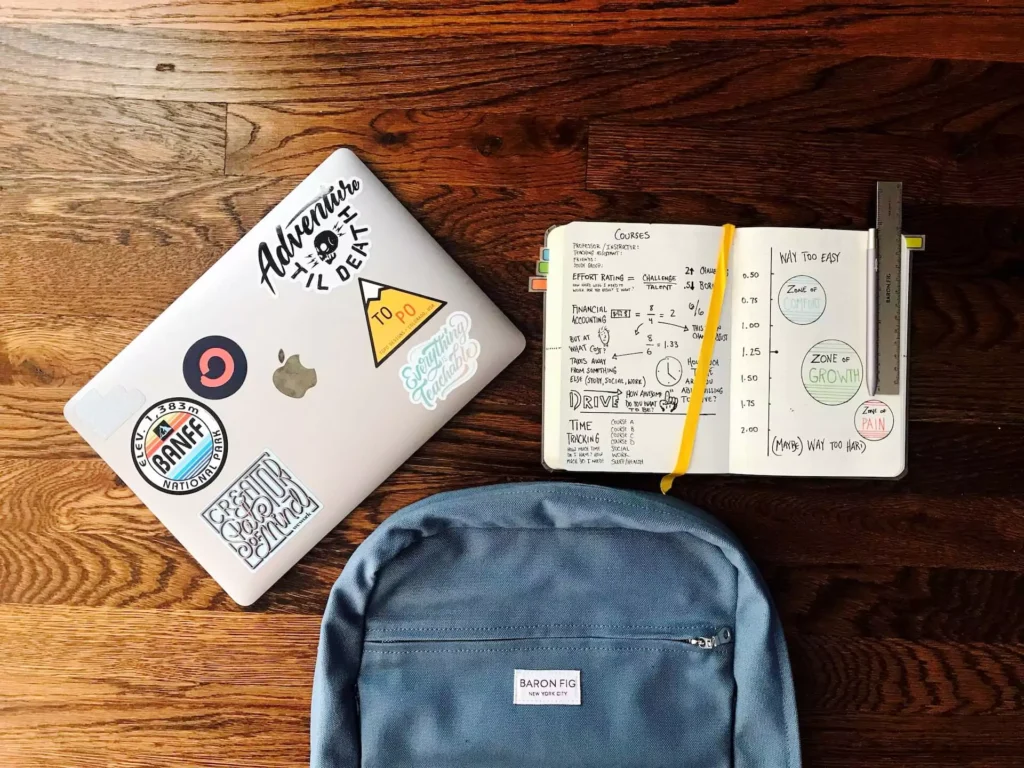If you want to get the most out of your time in school, you must use the right ways to study. Here, we look at the most important study tips!
Have you ever seen that some students study better than others? Even though they might have the same resources and the same amount of time, the knowledge sticks with them better.
To explain this, you could talk about intelligence, hard work, or the surroundings. But the truth is that even the most talented kids who attend the best schools will need help if they need to learn how to study well. That’s because learning is a skill or set of skills that can improve with practice. And a little patience.
If you want to get the most out of your studies, you’ll need to figure out what skills you need and how to get them or get better at them. After doing this, you should learn as many tips and tricks as possible.
So, you’ll give yourself all the help you can to get the most out of the time you spend studying.
Table of Contents
How to Study Effectively

The way you learn is very important. They’ll be different based on what you’re learning and how you’re learning it. Some classes are more about learning skills, while others are more about learning facts.
What are the Main Study Skills?
You can get a lot more out of your time as a student if you get better at a few basic study skills. All of these things can also be used in the workplace. So, what skills do you need to study well?
Time Management
You need to learn how to use your time well to get the most out of it, and this doesn’t just mean being on time; it also means setting up your solo study so that you cover everything while still going in-depth.
Organisation
The best way to study is in an organised manner. All of your things should be easy to get to, and you should have a way to absorb them, and this could mean quickly looking over everything, figuring out where the problems are, and going back. It could mean breaking up your days into key topics and carefully reviewing each one.
Note-Taking
When you’re trying to learn something, being able to take good notes will help you a lot. It will give you something to look back on, and if you write by hand, it will help you remember the information better.
Essay Writing
You can show that you know what you’re talking about by writing an essay. Writing essays can help you figure out where to learn more.
The Importance of Study Skills

Most of the advice you’ll find online is for the normal college student, who spends most of their time with other young people. If you’re not in this group, you may need to change your approach until you find one that works for you.
First-time Adults Learners
You may have spent little time in school while you were growing up. You didn’t think it was worth it or needed to be given the chance.
Regardless, you may still need to gain the study skills you need to do well, so tips like these can be very helpful. Leiden University says one of the best ways to learn online is to talk to other students, and this is because it’s often a good idea to make friends with those who are in the same situation you are in.
Adult Students are Going Back to School.
You might know what to expect if you’ve been through the school system before. You’re ahead of the competition in many ways, even though additional miles on time can make it more challenging to fit learning into an already hectic schedule. If you’ve gone back to school, it means you want to learn a lot. That will help you stay on task when you study late at night.
You may be surprised by how much has changed if you last attended school a while ago. Getting familiar with new study methods can help you close the gap, especially if you’re still using some old but familiar methods.
Neurodivergent Learners
If you’re neurodivergent instead of neurotypical, you know that you tend to think differently than most people in some scenarios. If you change how you study, you’ll get a lot out of it.
Try some different study methods with tips before you find one that works for you. If you can’t figure out how to do things normally, try changing a few things or even breaking up the rule book.
How can you get better at Studying?
We have a lot of classes that will help you learn how to study well and get the most out of your study time. They can help students of any age or skill level. Even if you think you know everything there is to know about learning, there are always more things to learn.
Top 10 Best Ways to Study

Students have come up with new ways to study better over the years. Some of these methods have worked so well that many use them. Try all of them and keep the ones that work for you.
1. Be Reliable
You’re setting yourself up to fail if you try to cram. It’s better to do a little bit of studying every day than to try to cram a lot of learning into one day, and this is because your brain needs time to put all that knowledge into your long-term memory, which it will do while you sleep.
2. Sleep Properly
If you don’t get enough sleep, you won’t be able to concentrate and will find it hard to learn new things. You won’t be able to study as well, in short. So, take a good sleep, like 8 hours per day.
Learning about how vital sleep is can make people worry about falling asleep. So don’t try to get to sleep by a certain time. Instead, make sure your bed space is comfortable.
Make sure you go to bed at the same time every night, don’t look at bright blue lights before bed, and have a good pattern for winding down.
Check out the University of Michigan’s training on sleep deprivation and how to avoid it if you want to improve your sleep habits.
3. Try using the Pomodoro Technique
In the 1980s, a student named Francesco Cirillo developed the ‘Pomodoro’ method. This word comes from the Italian word for “tomato,” since the timer he used looked like a tomato.
Yes, this is a way to handle your time. With the Pomodoro method, you divide your study time into 25-minute “sprints” during which you work hard on a single job. Then you’ll take a five-minute break when you’re done. After you’ve done this for a couple of hours, you can take a longer break.
For some of us, this method helps us focus. Knowing you’ll have a short break in ten minutes; can help you keep going even if you’re bored or distracted.
You can get a Free Promodo Timer here.
4. Make sure the Setting is Right
For studying to be effective, you need a place just for that. When you use the same area for work and play, it’s more likely that one will spill over into the other. Even if you don’t just put down the book and turn on YouTube, you might be more likely to do so. Trying to resist temptation will take up mental energy that you could use to do better in school.
Your workspace could be a small corner of your house or a room you’ve set aside for learning. You might work best with a certain type of music or without noise. Headphones or earplugs that block out noise can be very helpful.
5. Make Your Flashcards
Flashcards are a simple way to learn about important ideas and information. You can also test yourself with them later. You can make flashcards on your computer, but the pen-and-paper form works better.
6. Make a list of Everything

People of a certain age may remember an episode of Friends in which Chandler dares Ross to name all 50 US states. Even for Americans, it is a hard thing to do. It can be hard to remember the names of all seven elves in Snow White or the seven wonders of the ancient world.
If you are studying something that needs a lot of background knowledge, you must remember more than 50 things. In the periodic table, there are 118 elements that chemistry students will have to deal with, and students of other languages may have to deal with thousands of words.
If you divide long lists of information into groups, remembering the information will be much easier. Think about how you think about home phone numbers: they have a five-digit area code followed by two groups of three digits; this is called “chunking,” and it’s important to remember a lot of information quickly.
Also, think about processes and groups. You can use this as a reminder when it’s time to test yourself in the future. If you are trying to remember the names of all the countries in the European Union, four of them start with an S, and three start with an L.
7. Teaching Others

When you can explain something to someone, you know you understand it. It’s been said many times, but it’s still true: the best way to learn what you don’t know is to try teaching it to someone else. Find someone ready to help, like a friend or family member, and ask them questions about the topic.
You’ve taken many things you know for granted. You might think you know what “syntax” means if you study code or language. But do you?
Often, you only know how well you understand something once you try to explain it to someone else. An outsider’s view can help you see where you should focus your studies in the future, like how angled torchlight can show up a bad designer.
8. Get some Exercise
If your body is in good shape, your mind will be better able to pay attention and absorb new knowledge. You don’t have to work hard at sports to be good at them, but a quick walk now and then will help you feel better when you return to your studies.
Long-term, daily exercise will help you remember things and focus better. It will also help you avoid the stress that comes with a lot of studying. You’ll feel better about yourself and be better able to think of creative answers to problems. So, please work out what you like and add it to your study plan.
9. Set Yourself Goals

In 1955, The Economist published an article by Cyril Northcote Parkinson. The first line said, “It is a well-known fact that work grows to fill the time available to finish it.”
Parkinson may not have been the first to notice this, but he said it in a way that made it easy to remember, and this is now known as Parkinson’s Law. Parkinson’s Law says that if you have much time to do something, you’ll either fill it up or waste it.
You can avoid putting things off and the stress of cramming if you give yourself short-term goals. Do the work now, finish it early, and return just before the deadline to ensure everything is perfect.
When it comes to learning, you should set up a schedule. In this plan, write down what you want to learn and when you hope to have done it. If you’re making less progress than you’d thought, you’ll be more likely to work hard. If you’re ahead of plan, you can work even harder because you know you’re a hard worker.
10. Meditate
We’ve already talked about the benefits of exercise for your body. But what about brain exercises? Mindfulness practices are becoming more and more popular in the modern workplace. They are linked to less stress, better focus, and a better sense of well-being in general.
Even a small amount of meditation can make a big difference if you do it daily. You could get an app or look into online lessons to help you get the most out of it. Mindfulness has never been easier to learn, and it might be just what you need to study better.
Last thing to say
Studying well will help you in ways that will last long after school. Improving your study skills will make you a more valuable and productive worker and help you personally. In our last blog post about how to do well with online learning, we discussed many tips we just reviewed. If you want to find out more, check that out.
